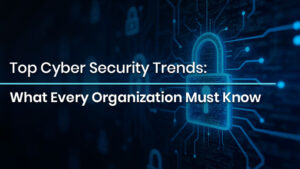
Top Cyber Security Trends: What Every Organization Must Know
Top Cyber Security Trends: What Every Organization Must Know Introduction In an era marked by digital transformation, remote workforces, and rapidly evolving threat landscapes,
Limited-Time Offer! Get an exclusive 40% OFF on IPSpecialist Premium Monthly & Annual Plans. Use Promo Code: UPSKILLNOW at checkout.

Top Cyber Security Trends: What Every Organization Must Know Introduction In an era marked by digital transformation, remote workforces, and rapidly evolving threat landscapes,

Zero Trust vs. SASE: Everything You Need to Know Introduction As the cyber world continues to change, companies need to look beyond conventional security

Cloud Security Posture Management (CSPM) Introduction In the era of digital transformation, organizations are moving to the cloud at an unprecedented pace. While the
Table of Contents

Trojan refers to a malicious program misleading its true intentions. It is often disguised as a legitimate software or wrapped with a legitimate software. Traditionally, popular software that available on mirror sites are mostly wrapped with malwares. Hackers take advantage of their popularity and wrap their malicious program with it. Trojans are popular for remote access and backdoor. Remote Access Trojans (RATs) allow gaining unauthorized privileged access to a system. Once a Trojan program is executed on a system, it becomes difficult to trace however, Anti-Trojans and Rootkit Scanners help to detect them.

There are several types of Trojans, the most popular categories are:
“Many of the Trojans we hear about today were designed to target a specific company, organization, or even government”
Remote Access Trojans are those malicious programs, which provide access of a system through a remote connection. A victim is tricked by a cracked or a free software or an anti-virus software usually by social engineering. RATs provide a remote access of the victim’s machine to the hacker. If a RAT is successfully exploited, it allows the hacker to browse the directories, modify, delete, replace and execute the files on the targeted system. It also provides access to monitor and kill all running processes. Advance RATs are smart enough to provide administrative remote access.
Overall malware activity increased up to 61% from December 2018 to January 2019. Primary infection vectors are banking Trojans and Remote-Access Trojans like Emotet, Kovter, Dridex and NanoCore. The MS-ISAC Top 10 Malware refers to the top 10 new actionable event notifications of non-generic malware signatures sent out by the MS-ISAC Security Operations Center (SOC).

Trojan Development Kits (TDKs) are the applications, which are easily downloadable for free. These kits are the interface for beginners to create their own variants of Trojans. To generate a malware, a user needs to choose customization by clicking the form.


Malware is the malicious program or piece of code used to exploit a target.
Backdoor is a malicious program, which provides access of a system bypassing the security controls and authentication process.
Trojan is a type of malware that is often disguised as legitimate software. Trojans can be employed by cyber-thieves and hackers trying to gain access to users’ systems.
Droppers are helper programs for various types of malware such as Trojans and rootkits. Usually they are implemented as scripts (VB, batch) or small applications.
Crypter is a software that can encrypt, obfuscate, and manipulate malware, making it undetectable to security programs.
Wrapper is a program used in Transmission Control Protocol (TCP) to provide a layer of security by intercepting calls to computer services and determining whether the service is authorized to be executed.
© 2025 All rights reserved | Privacy Policy | Terms and Conditions | Sitemap | Cookie Policy




